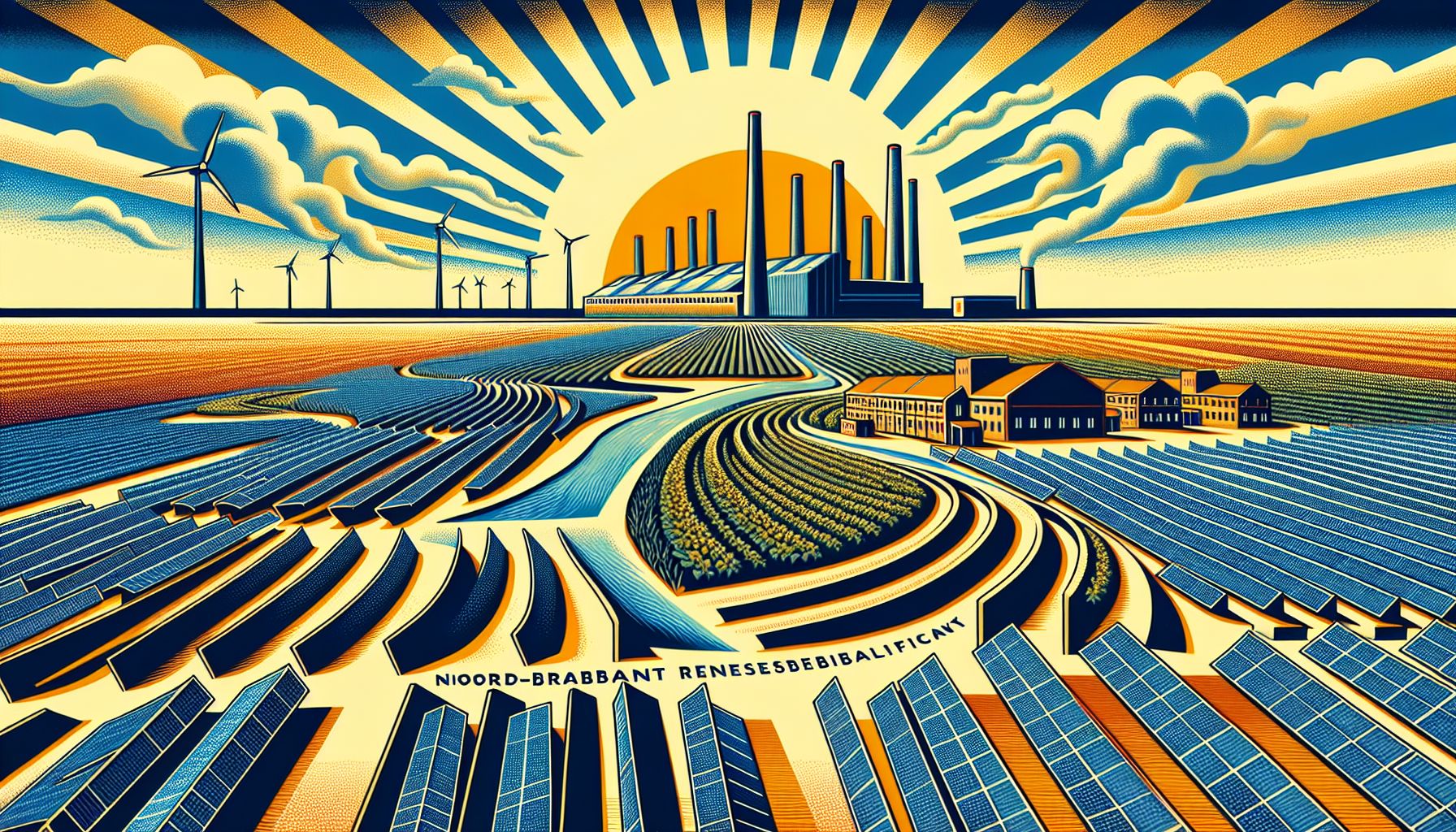Noord-Brabant's Solar Renaissance: Reviving Dutch Energy Independence

North Brabant, Thursday, 25 July 2024.
Noord-Brabant aims to reestablish a large-scale solar energy industry in the Netherlands, focusing on innovative perovskite-based flexible solar products. With a goal to create a 2 GW capacity factory by 2028, this initiative challenges China’s 75% market dominance in Dutch solar panels, promising a sustainable future for European energy production.
The Drive for Local Production
The Netherlands has long been reliant on imported solar panels, with a staggering 75% coming from China[1]. This dependence not only impacts the local economy but also raises concerns about supply chain vulnerabilities and sustainability. Noord-Brabant’s ambitious plan to establish a factory with a 2 GW capacity by 2028 aims to address these issues head-on. By localizing production, the region seeks to enhance energy security, foster innovation, and stimulate the local job market.
Innovative Solar Technologies
Central to this revival effort is the development and deployment of perovskite-based flexible solar products. Perovskite solar cells are known for their high efficiency and lower production costs compared to traditional silicon-based cells. These flexible solar products can be integrated seamlessly into various surfaces, including building facades and rooftops, making them particularly attractive for urban applications. TNO’s involvement in this project underscores the organization’s commitment to pioneering sustainable technologies and reducing the carbon footprint of energy production[2].
Webinar to Kickstart the Initiative
To catalyze this ambitious initiative, TNO is organizing a webinar titled ‘Solar Energy in Brabant - Building a Sustainable Future for Europe’ on Monday, 9 September 2024, at 16:00 CET[3]. This event will serve as a platform for key stakeholders, including policymakers, construction sector professionals, and material suppliers, to discuss the technological advancements and industry needs. Paul Gosselink, Program Manager at BOM, and Veronique Gevaerts, Senior Scientist at TNO, will lead discussions on integrating solar products into building designs and the latest updates on perovskite solar technology.
Broader Implications for the Energy Sector
The implications of Noord-Brabant’s solar industry revival extend beyond regional benefits. By reducing reliance on imported solar panels, the Netherlands can achieve greater energy independence and contribute to the European Union’s broader goals of sustainability and climate change mitigation. The success of this initiative could also serve as a model for other regions looking to harness local resources and technological expertise to build resilient and sustainable energy infrastructures.
A Collaborative Effort
The initiative’s success hinges on collaboration between public and private sectors. TNO’s role as a facilitator of innovation projects is crucial in bringing together various stakeholders. The organization is already working with researchers in Petten and Eindhoven to ensure that advances in solar technology are effectively translated into practical applications. This collaborative approach aims to create a robust ecosystem that supports continuous innovation and market growth[4].
Future Prospects
Looking ahead, Noord-Brabant’s solar energy initiative represents a significant step towards a sustainable and self-sufficient energy future for the Netherlands. By 2028, the region aims to not only meet its energy needs but also position itself as a leader in solar technology innovation. As TNO continues to drive advancements in this field, the ripple effects of this initiative are expected to boost the Dutch economy, create jobs, and contribute to global efforts to combat climate change.

